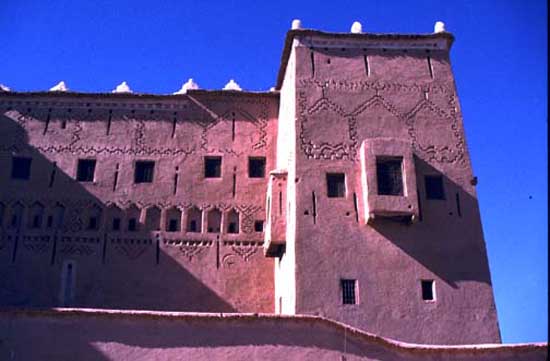
Morocco RPCV Jason Ben-Meir says to promote Palestinian self-reliance through community development
Promoting Palestinian self-reliance through community development
Jason Ben-Meir
Jordan Times, Sunday, March28 , 2004
COMMUNITY DESIGNED development can assist in a critical way in securing peace among Israelis and Palestinians. The current seemingly intractable situation has led most of the Israeli public and leaders to support physical and economic separation from the Palestinians, with the construction of the West Bank wall representing an impossible-to-ignore step in this direction. Some Palestinian officials are now also suggesting that a separation would be acceptable to them, even considering the increased economic hardships that would certainly ensue, if it also includes full political separation along acceptable geographic borders. The problem with separation is that the Palestinian economy is completely integrated with, and dependent on, Israel's. The trade and labour restrictions (at times, closures) imposed by Israel to enhance its security have wreaked economic havoc on the majority of Palestinians and have dramatically deepened their economic vulnerability. Perhaps more than ever before, the Palestinians are ravaged by poverty, declining health and environmental devastation. Two-thirds now depend on humanitarian aid to survive. Recent studies suggest that, but for the financial support of the international community, primarily the League of Arab States, the Palestinian National Authority would have collapsed.
Case studies from almost every country show that local and national self-reliance is fostered when community members collaboratively design and implement projects to better their lives. Self-reliance is generated because interactive dialogue among community members draws forth information from a variety of perspectives, thus increasing the ability of participants to make informed decisions. Studies also show that self-reliance is encouraged when projects are developed based on local capacities and know-how. But what if this community development approach were widely applied in the West Bank and Gaza?
From what is known about other such projects, economic self-reliance would restructure the Palestinian economy. Around the globe, community designed projects have diversified income, provided food and healthcare, furthered education, preserved natural resources, and forged public-private partnerships.
What is the “magic bullet”, so to speak of these projects? In general, community-wide participation in the design and management of development projects creates socio-economic progress through a pluralist democratic process. By directly responding to their self-defined needs, communities have a strong incentive to maintain the projects its members establish.
In the process of communities working together to realise their development goals, they also establish local associations (core civil-society institutions) to manage projects and create new ones. New tiers of cooperation then form as neighbouring communities join together in implementing projects beneficial to the entire region. In brief, achieving local development through inclusive dialogue has positive economic and political consequences.
Specifically, how can community designed development be implemented to improve life in the West Bank and Gaza? Meetings characterised by broad public participation should be organised in every community. In these meetings, which require facilitation, local people should first prioritise their development goals and next design projects to reach them. Members of the community, local teachers, government extensionists and NGO personnel, among others, can all be effective facilitators of meetings once they receive training in techniques of consensus building and organising interactive dialogues. The international community then needs to fund the projects that communities will design, implement and manage by themselves.
Israel and the West can generate tremendous goodwill, and noticeably lessen the short-term costs of Palestinian self-reliance, by directly funding community projects in the West Bank and Gaza designed and managed by local Palestinians. The international community (including the World Bank) should strongly encourage the PNA to more actively support local development initiatives. Though the Palestinians in the West Bank and Gaza currently receive one of the highest levels of per capita foreign assistance in the world, the majority of aid disbursements have to cover recurrent expenditures or deficits of the PNA. Therefore, the international community should increase its financial support in order for the Palestinians to construct a more self-reliant economy, based on community empowerment.
As local community resources improve, international assistance will become less necessary. This development approach in the West Bank and Gaza will help stabilise Israeli-Palestinian political relations and increase the prospects for peace.
The writer teaches at the University of New Mexico, Albuquerque. A former Peace Corps volunteer and associate director who served in Morocco, he is currently president of the High Atlas Foundation, a non-profit outfit that assists community development in Morocco, and a fellow at the American Institute of Maghrib Studies. He contributed this article to The Jordan Times.
